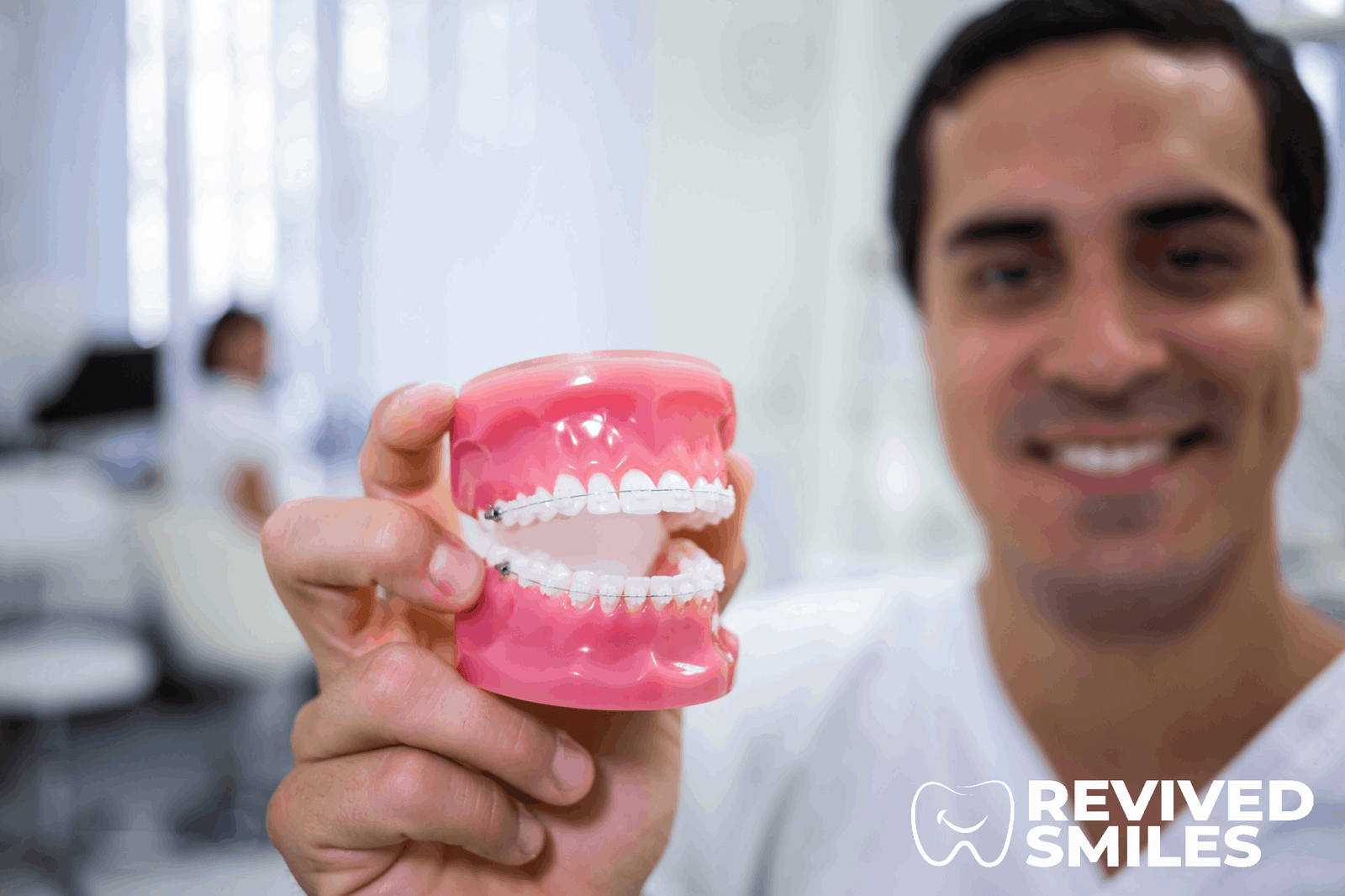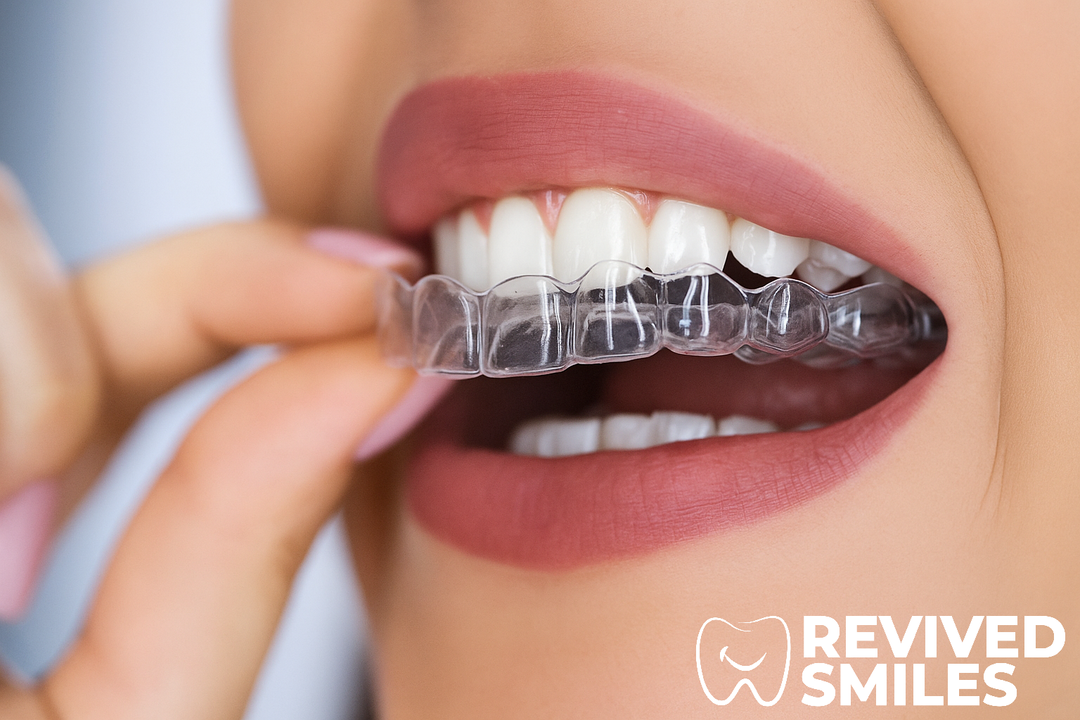10 Types of Dentures Explained: Find the Perfect Fit for Your Smile

Losing teeth can feel like a blow to your confidence, your comfort, and even your ability to enjoy life’s simple pleasures, like biting into an apple or laughing without hesitation. But here’s the good news: dentures have come a long way from the clunky, one-size-fits-all solutions of the past.
Today of how many teeth go, there’s a wide range of denture options designed to fit your unique needs, lifestyle, and budget.
Whether you’re missing a single tooth or a full set of artificial teeth, dentures can restore your smile with replacement teeth, improve your oral health, and help you feel like yourself again.
In this guide, we’ll walk you through the different types of dentures, their benefits, and how to choose the right option for you. Let’s dive in!
What are Dentures?
Dentures are custom-made dental appliances designed to replace missing teeth and restore the function and appearance of your smile. They come in various forms, from full sets of temporary dentures that replace all teeth in an arch to partials that fill in gaps left by one or more missing teeth.
Modern dentures are crafted to closely resemble natural teeth, providing a more comfortable and aesthetically pleasing solution compared to older models.
Dentures can be made from different materials, including acrylic, porcelain, and flexible resins, each offering unique benefits. Whether you need a temporary fix or a permanent solution, there’s a type of denture to meet your needs.
The right choice depends on factors like the number of missing teeth, the health of your remaining natural teeth underlying bone alone, and your personal preferences.
Types of Dentures
Full/Complete Dentures
-
Pros: Replace all missing teeth, improve chewing and speech, enhance facial support, relatively affordable. Full/complete dentures consist of upper and lower sets of denture teeth, which can be made from materials like porcelain or acrylic.
-
Cons: Can feel bulky, may slip or click, require adjustment, can irritate gums, don’t preserve bone.
-
Best Use: Patients who have lost all teeth in one or both arches and seek a cost-effective solution for restoring function and aesthetics.
Palateless Dentures (Full)
-
Pros: More comfortable for some, reduces gagging reflex, allows for better taste sensation.
-
Cons: May be less stable than traditional full dentures, not suitable for all patients.
-
Best Use: Patients with a sensitive gag reflex or those who find traditional full dentures uncomfortable. Palateless dentures can also be used for replacing all missing teeth in the upper or lower jaw, providing a more comfortable option for some patients.
Immediate Dentures (Full)
Pros: Immediate tooth replacement after extractions, maintains facial appearance during the healing process.
-
Cons: Require frequent adjustments as gums heal, may not fit as well long-term.
-
Best Use: Patients who want immediate tooth replacement after extractions and are prepared for adjustments. Ideal for patients who want to wear dentures immediately after tooth extractions to maintain facial appearance during healing.
Partial Dentures
Partial Dentures
-
Pros: Replacing some missing teeth with a partial denture, preserving remaining natural teeth, can be more affordable than implants.
-
Cons: Can be less stable than implants, may affect speech, clasps can be visible.
-
Best Use: Patients with some remaining healthy teeth who need to replace multiple missing teeth.
Flexible Dentures (Partial)
-
Pros: Comfortable, lightweight, aesthetically pleasing (clasps less visible), less likely to break.
-
Cons: Can be more expensive, difficult to repair.
-
Best Use: Patients who prioritize comfort and aesthetics and have healthy remaining teeth.
Acrylic Partial Dentures
-
Pros: Affordable, durable, can be easily adjusted.
-
Cons: Clasps may be visible, and can be less comfortable than flexible dentures.
-
Best Use: A cost-effective option for replacing missing teeth when comfort is not the primary concern.
Implant-Supported Dentures
Implant-Supported/Implant-Retained Dentures
-
Pros: Excellent stability, improved chewing ability, preserves bone, increased comfort.
-
Cons: More expensive than traditional dentures, requires surgery, longer treatment time.
-
Best Use: Patients who desire maximum stability and improved function and are willing to invest in implants. Implant-supported dentures can also serve as permanent dentures, offering a stable and non-removable solution for patients.
Overdentures
Pros: Improved stability compared to traditional dentures, can be supported by implants or teeth.
-
Cons: Still require some level of maintenance, may require adjustments.
-
Best Use: Patients who need more stability than traditional dentures but may not be candidates for fixed implant dentures.
Bar-Retained Dentures
-
Pros: Excellent retention and stability, even distribution of pressure. Bar-retained dentures can also be considered as removable implant supported dentures, providing a secure fit on implants and ease of maintenance.
-
Cons: More complex to fabricate, can be more expensive than other implant options.
-
Best Use: Patients needing maximum support and retention, often for full lower dentures.
Hybrid Dentures (Fixed Implant Dentures)
-
Pros: Maximum stability, feels like natural teeth, no need to remove.
-
Cons: Most expensive option, requires sufficient bone, more complex maintenance.
-
Best Use: Patients who want a permanent, stable solution and are willing to invest in the highest level of implant support.
Fixed Bridge Dentures
Fixed bridge dentures are a type of denture that is permanently attached to the remaining natural teeth on either side of the gap. They are a popular option for individuals who have one or more missing teeth and want a more stable and secure denture solution rather than traditional dentures.
Fixed bridge dentures are designed to closely resemble natural teeth and can be made from a variety of materials, including porcelain, ceramic, and composite resin.
One of the main benefits of fixed bridge dentures is that they are more stable and secure than removable dentures. They are also more comfortable to wear and can help to improve the overall appearance of the smile.
Additionally, fixed bridge dentures can help to prevent the surrounding teeth from shifting or moving out of place, which can help to maintain the overall health and stability of surrounding tissues in the mouth.
Fixed bridge dentures are typically made in a dental laboratory and are custom-fitted to the individual’s mouth. The process of getting fixed bridge dentures typically involves several appointments with a dentist or prosthodontist, who will take impressions of the mouth and create the final denture from a model of the teeth. The fixed bridge denture is then attached to the remaining natural teeth using dental cement or another type of adhesive.
It’s worth noting that fixed bridge dentures are not suitable for everyone, particularly those who have a large number of missing teeth or significant bone loss in the upper jaw. In these cases, other options such as dental implants or implant-supported dentures may be more suitable.
Overall, fixed bridge dentures are a popular and effective solution for individuals who want a more stable and secure way to replace missing teeth. They can help to improve the overall appearance and function of the mouth, and can be a more comfortable and convenient option than traditional dentures.
Other Types and Considerations
Cosmetic Dentures: (Feature, not a distinct type)
-
Pros: Focus on natural appearance, customized to individual features, high-quality materials used.
-
Cons: Can be more expensive than standard dentures, results depend heavily on the skill of the dentist and lab technician.
-
Best Use: Patients with high aesthetic concerns who are willing to invest in a natural-looking smile.
Digital Dentures: (Manufacturing process)
-
Pros: Precise fit, faster fabrication process, less chair time, potential for easier remakes.
-
Cons: Higher initial cost for the technology, requires specialized training for dentists and lab technicians.
-
Best Use: When accuracy and efficiency are desired, particularly for complex cases.
Snap-on Dentures (Implant-retained, usually partials)
-
Pros: Secure fit, improved stability compared to traditional partials, better chewing ability. Using a denture adhesive can enhance the stability and comfort of snap-on dentures, preventing food particles from trapping under the dentures.
-
Cons: May require more maintenance than traditional partials.
-
Best Use: Patients seeking better retention than traditional partials and are candidates for dental implants.
Economy Dentures (Price point)
-
Pros: Lower cost, accessible to patients on a tight budget.
-
Cons: May use lower-quality materials, less customization, may not fit as well or last as long. Economy dentures may require the use of denture adhesives to ensure stability and comfort.
-
Best Use: Patients on a tight budget who prioritize affordability over other factors.
Boil and Bite Dentures (Temporary)
-
Pros: Inexpensive, readily available, can provide immediate tooth replacement.
-
Cons: Poor fit, uncomfortable, can irritate gums, not durable, should only be used as a temporary solution.
-
Best Use: Immediate, temporary replacement while waiting for custom dentures.
Soft-Liner Dentures (Feature)
-
Pros: Increased comfort, reduces gum irritation, helpful for patients with sensitive gums or sore spots.
-
Cons: Can be more difficult to clean, may need more frequent replacement than standard liners.
-
Best Use: Patients with sensitive gums, or those who experience discomfort with traditional dentures.
How to Choose the Right Denture Type
Choosing the right dentures depends on several factors:
-
Level of Tooth Loss: Are you missing a few teeth or a full set?
-
Oral Health: Do you have healthy gums and jawbone to support implants?
-
Comfort Preferences: Do you prioritize stability or ease of removal?
-
Budget: What’s your price range for dentures?
New users should also consider the adaptation process and potential challenges of wearing dentures, such as initial discomfort and adjustments in speech.
The best way to determine the right option is to consult with your dentist. They’ll assess your oral health, discuss your goals, and recommend the most suitable denture type for your needs.
Denture Care and Maintenance

Taking proper care of your dentures is essential for their longevity and your oral health. Here are some tips:
-
Clean Daily: Brush your dentures with a soft-bristled brush and non-abrasive cleaner.
-
Rinse After Meals: Remove and rinse your dentures to remove food particles.
-
Soak Overnight: Use a denture-soaking solution to keep them moist and clean.
-
Visit Your Dentist: Regular check-ups ensure your dentures fit well and your mouth stays healthy.
Getting Dentures: What to Expect
The process of getting dentures typically involves:
-
Initial Consultation: Your dentist will examine your mouth and discuss your options.
-
Impressions: They’ll take molds of your mouth to create custom dentures.
-
Fitting: You’ll try on your dentures to ensure they fit comfortably.
-
Adjustments: Minor tweaks may be needed for the perfect fit.
It may take a few weeks to adjust to the snap in your new dentures, but with time, they’ll feel like a natural part of your smile.
Conclusion
Dentures are more than just a solution for missing teeth—they’re a gateway to a healthier, more confident you. With so many types of dentures available, there’s an option to suit every need and budget.
The key is to work closely with your dentist to find the right fit for your lifestyle and oral health. Whether you opt for complete dentures, partial dentures, or implant-supported options, the right choice can transform your smile and your life.
Ready to take the next step? Schedule a consultation with your dentist today and explore the possibilities. Your perfect smile is closer than you think!





Leave a comment